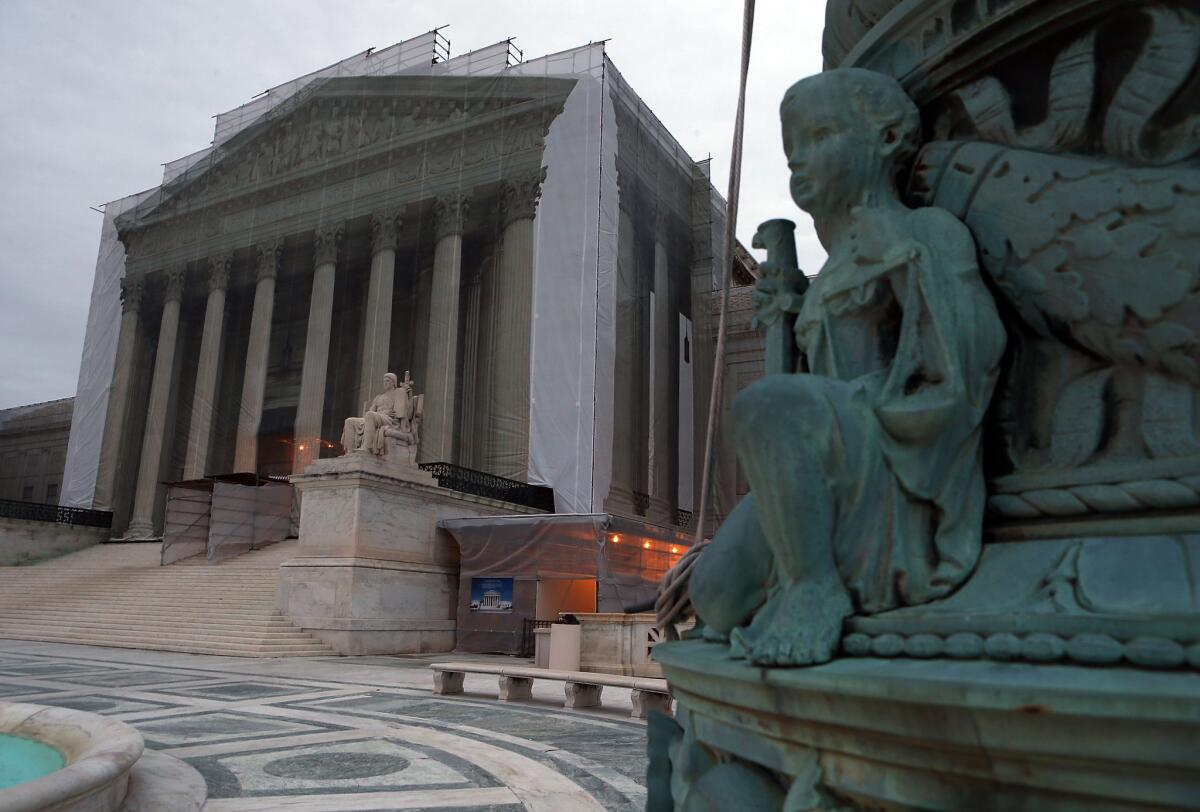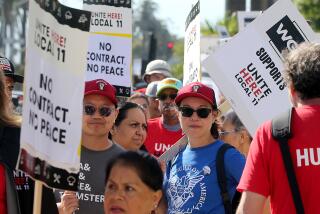Prayers in public offices

- Share via
Ideally, governmental bodies would refrain from including prayers — even ecumenical, “lowest-common-denominator” ones — in their public proceedings. But if prayers are to be offered, they certainly shouldn’t be monopolized by a single religious tradition. That is how the Supreme Court should rule in a case involving a town in New York state.
On Monday, the justices agreed to hear a case involving the town of Greece, N.Y., which since 1999 has begun its official meetings with a prayer. Although the town on rare occasions has invited non-Christian leaders (including a Wiccan priestess) to deliver invocations, two-thirds of the prayers have mentioned “Jesus Christ,” “Jesus,” “Your Son” or the “Holy Spirit.”
The appeals court that heard the case didn’t rule that all prayers at public meetings must be nonsectarian. But it did offer a legal test for judges to employ in evaluating the practices of local governments. It said that “legislative prayer practice that, however well intentioned, conveys to a reasonable objective observer under the totality of the circumstances an official affiliation with a particular religion violates the clear command of the establishment clause.” (That conclusion by the U.S. 2nd Circuit Court of Appeals takes a more critical view of sectarian prayers than the one taken by the U.S. 9th Circuit Court of Appeals, which in March upheld prayers at city council meetings in the California city of Lancaster.)
We wouldn’t object if the Supreme Court took advantage of the New York case to hold that prayers as part of the legislative process are as much a violation of the 1st Amendment as official prayers in public schools. But that is unlikely given a 1982 decision in which the court said that “opening legislative sessions with prayer has become part of the fabric of our society.”
But in that same opinion, then-Chief Justice Warren E. Burger pointed out that “there is no indication that the prayer opportunity has been exploited to proselytize or advance any one, or to disparage any other, faith or belief.” In that spirit, many legislative chaplains, including the chaplain of the U.S. House of Representatives, a Jesuit priest, choose not to mention Jesus in their prayers. Of course, such circumspection is small comfort for citizens who don’t believe in any god. But it’s preferable to the sort of favoritism shown to Christianity by the authorities in Greece, N.Y.
The Supreme Court should affirm the 2nd Circuit’s finding that prayers at public meetings shouldn’t favor a particular religion. But however the court rules, public bodies should make their own choice to confine their official business to secular matters. That won’t prevent their religious constituents from praying for the success of their efforts.
More to Read
A cure for the common opinion
Get thought-provoking perspectives with our weekly newsletter.
You may occasionally receive promotional content from the Los Angeles Times.









